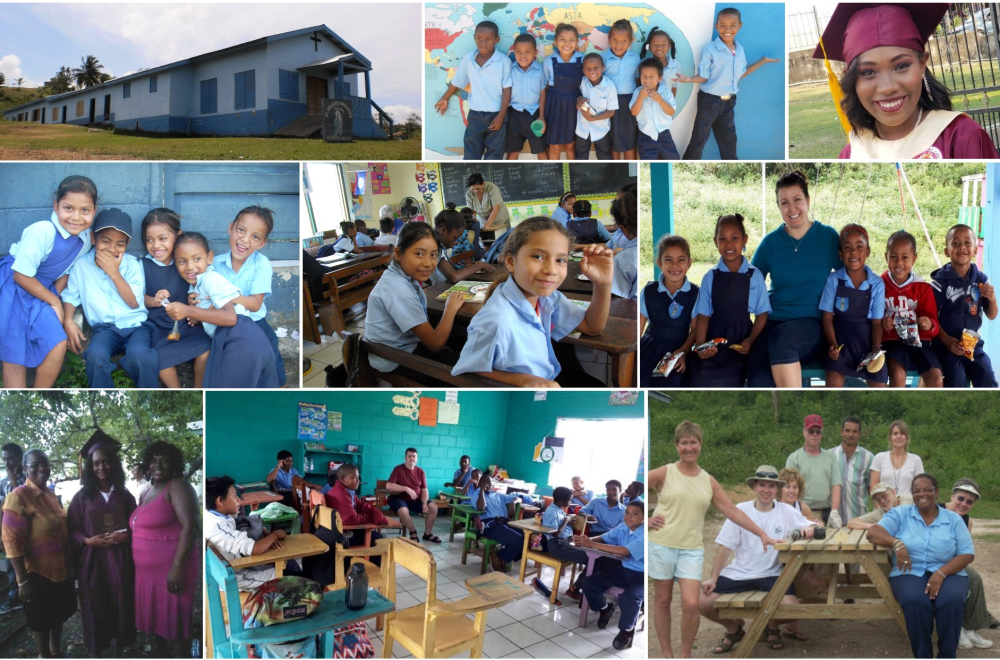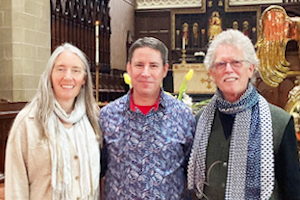
If you have any questions or would like to express your interest in supporting or joining the Belize mission, please email <belizemissions at cccath.ca>.
The Cathedral has a special relationship with the staff and students of St. Hilda’s Anglican School, an elementary in the rural village of Georgeville. Over two hundred children attend the school, ranging between kindergarten and grade 8, in addition to a recently established preschool.
Cathedral teams have travelled to Belize five times: in 2005, 2007, 2010, 2013 and 2018. Over 60 Cathedral members ranging in age from 15 to 79 have participated in a mission trip to Belize, and hundreds of people in Fredericton have supported the work at St. Hilda's through organizational support, donations and prayers.
In 2010, Cathedral mission team members established a high school scholarship program which has allowed students from St. Hilda’s to apply for a scholarship to continue their education past grade 8 (high school is not publicly funded in Belize, and finances are a barrier for many families). Some of the graduates supported by the Cathedral have continued on to post-secondary education, and all have gained knowledge and experience that will help them in their future. We are grateful to everyone from our congregation and beyond that has helped to provide scholarships for these teenagers, and support for programs at the elementary school.
Scroll through our website archives to read more about the students and teachers in Belize, and past mission trips.


